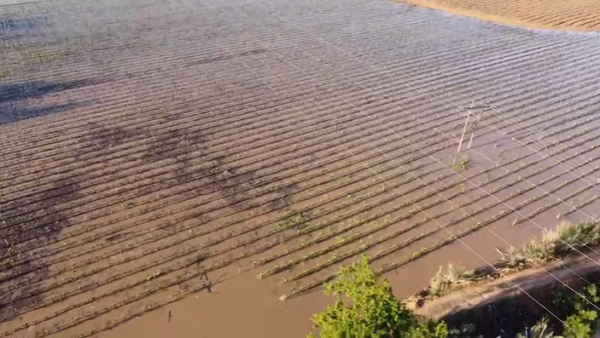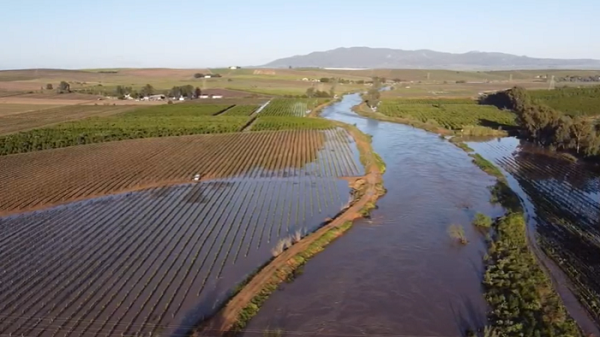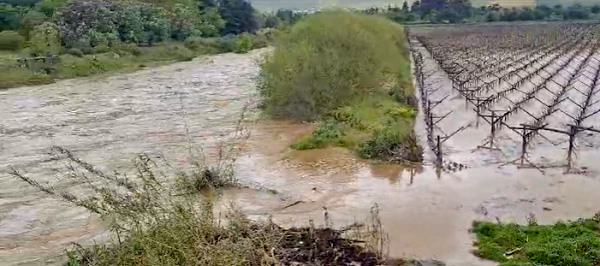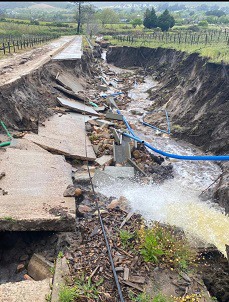A very deep cut-off low pressure system, connecting the lower with the upper atmosphere, brought two months’ worth of winter rainfall to the Western Cape in three days.
“The impact has been terrible. The Berg River has created new canals for itself, breaking its banks and swept away many hectares of land,” explains Eurica Scholtz, representative of the Berg River Irrigation Board.
“Farmers who lost everything during the previous flooding in June, have again lost all that they replanted. Some of the vegetable and strawberry crops were almost ready to be harvested and sold, and all now, again, swept away by the floods."

Submerged vineyards
The irrigation board overseas the entire length of the Berg River, all 284km from where it originates in the Franschhoek mountains, until it reaches the Atlantic coast at Velddrif. It is an important waterway for agricultural purposes along its length.
Eurica remarks that as the flood water rushes downstream (reaching Zonquasdrif today) it could have further impacts.

“Farmers are down and out”
She says she has seen farmers crying; they’ll probably have to sell up and leave hundreds of farm workers destitute.
“Farmers don’t know which way to turn. They are down and out! And one can’t go ahead and replant a third time, then it’s the wrong season.”
Pumps and motors – many newly replaced after the flooding three months ago – were again damaged or swept away.
One table grape farmer says they had taken out their pump motor's new suction heads on Friday, despite only installing it four days before: a big job, but at least they saved their pump motors.

Eurica adds: “The catch-22 is that our new water year starts on 1 November and we need to measure our water use and report those figures to the department of water affairs, but I’m not sure all of the water meters will be operational by that time.”
Farmers bear "astronomical costs" alone The soil is by now so saturated and river banks so reduced, that a small amount of rain quickly turns into a destructive flood.
The soil is by now so saturated and river banks so reduced, that a small amount of rain quickly turns into a destructive flood.
Farmers are legally responsible to repair damage to the river canal, and out of their own pocket.
“There is no state funding for riverine rehabilitation, only for humanitarian aid like water supply to communities. Farmers don’t have funds, they’re at the end of their tether. That is why I want to plead with the minister to declare this area a disaster area – because the damage is so astronomical.”
She remarks that there had been no financial aid to repair the June flood damage.
“There are no rebates for our farmers, nothing to help them carry the financial burden. At least Eskom has suspended our loadshedding for the time being.”
The LandCare Winelands programme within the provincial department of agriculture has been very supportive, Eurica adds.
